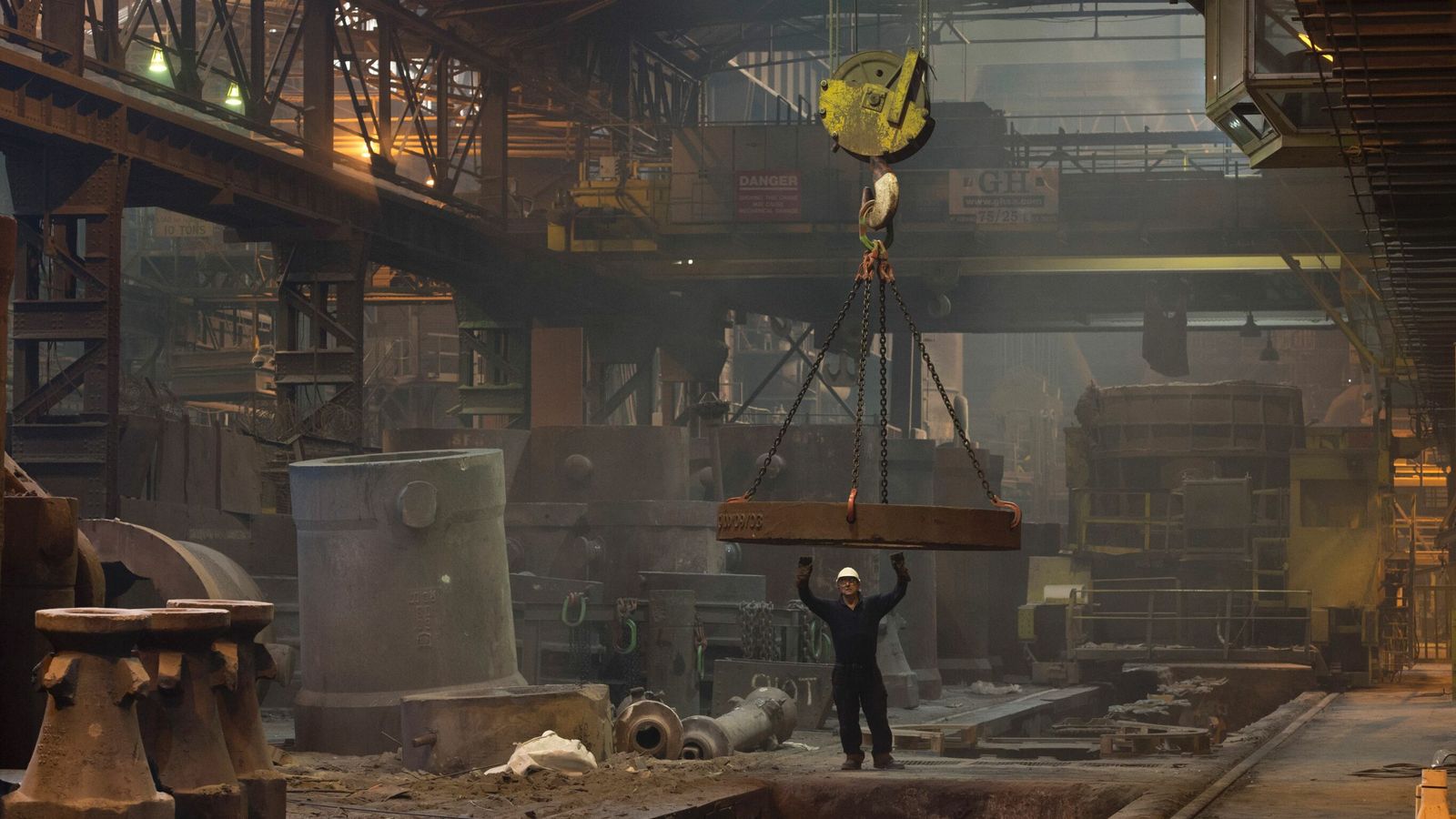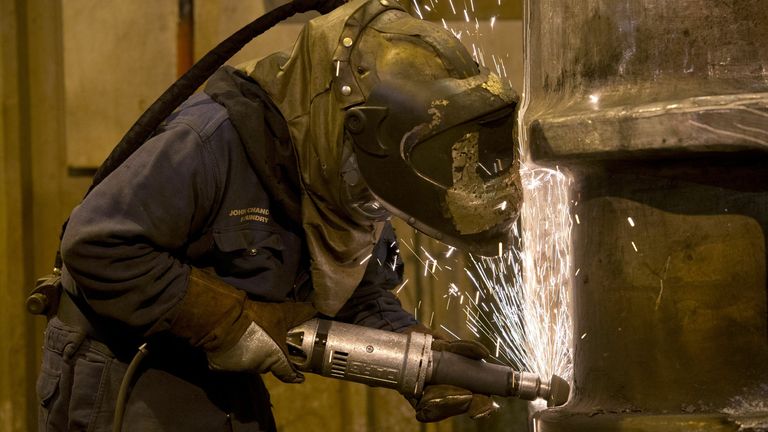Defence chiefs are in talks about a move to take over one of Britain’s oldest steelmakers in an attempt to shore up the supply chain of Britain’s nuclear submarine fleet.
Sky News has learnt that the Ministry of Defence (MoD) is holding preliminary discussions about acquiring control of Sheffield Forgemasters, which traces its roots back to the 1750s.
Steel industry sources said this weekend that the MoD had enlisted the accountancy firm Deloitte to advise it on the talks with the privately owned company.
They cautioned that an outright takeover of the business was only one of a number of options being examined, and that any agreement was likely to be several months away.
If a deal did materialise, it would reflect an increasingly interventionist approach from the government towards the ownership of assets with national security implications.
The recently published National Security and Investment Bill includes more than a dozen sectors – including defence and military and dual use – where foreign ownership would require mandatory notification.
In 2015, Sheffield Forgemasters was approached by an unidentified state-owned Chinese company about a rescue deal, which was ultimately blocked by ministers.
The south Yorkshire-based company’s work for the MoD is shrouded in secrecy, but it is understood to make advanced steel components for Britain’s fleet of Trident-armed nuclear subs.
It has struggled financially for years, with depressed international steel prices hampering margins amid weakened demand.
Sky News revealed in 2016 that three of Britain’s industrial titans – BAE Systems, Babcock International and Rolls-Royce Holdings – had stepped in to underwrite £30m of bank lending provided to Sheffield Forgemasters by the American bank Wells Fargo.
That underwriting commitment is thought to have remained in place for several years.
In October, Sheffield Forgemasters said it would cut nearly 100 jobs – more than 10% of its workforce – as a result of the coronavirus pandemic’s impact on demand from commercial customers in industries such as oil and gas.
The company, which is now run by David Bond, a former BAE executive, said at the time that it was financially secure until 2022 as a result of its defence work.
An MoD spokesperson said: “Sheffield Forgemasters is a strategic supplier to our programme and therefore we are in regular dialogue with them.
“It would be inappropriate to comment further due to commercial sensitivities.”
In a statement, Mr Bond said: “Our long-term relationship with UK Defence prime contractors and the MoD is based on the critical work we do within the submarine programme and we will not comment on matters regarding our defence work.”
The latest accounts for Sheffield Forgemasters International, filed in August, show the group made an operating profit of £1.7m in 2019, despite a major flood event and continuing subdued demand.
It said it had won £66m of new contracts during the year, driven mainly by defence orders, which it said would “provide the core revenues of the group through to 2022”.
An asset-based lending facility with Wells Fargo had been extended until the end of next year, the accounts said.
It was unclear this weekend how any acquisition of Sheffield Forgemasters might be structured, or whether it would incur any cost to taxpayers.
The company’s private shareholders are thought to include Graham Honeyman, its former chief executive.
In recent weeks, defence chiefs have moved to take control of the Atomic Weapons Establishment, another key part of the nuclear weapons programme, by terminating a deal with private sector contractors including Serco, the outsourcing group.
Sheffield Forgemasters’ origins are traceable to the 1750s, although its roots are usually said to stem from 1805, when George Naylor set up the Millsands steelworks.
In more recent times, the company has had occasional brushes with political controversy when both Nick Clegg – then a Sheffield MP – and David Cameron were linked to decisions about government grants and loans to it.

